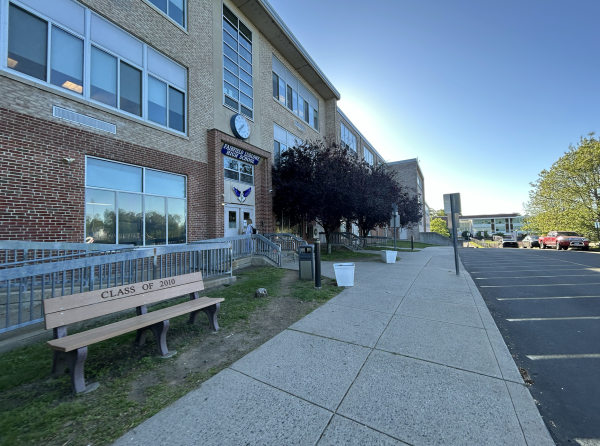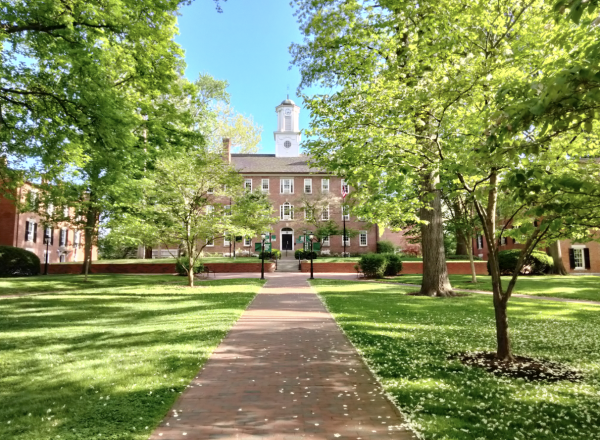Black History is American History: Utah School District Allows Families to Opt Students Out of Black History Month
Schools need to hold Black history to the same importance as white history in order to create an informed and educated citizenry.
Earlier this month, Maria Montessori Academy, in Utah, made a very controversial decision: families were allowed to opt their students out of Black History Month education. School Director Micah Hirokawa says that he was “reluctant” to allow the decision and believed students and families would “exercise their civil rights to not participate in Black History Month at the school.” Hirokawa declined to say how many parents asked not to participate and what their reasons were.
Maria Montessori Academy, a charter school for elementary and middle school students, spends the month of February incorporating Black History Month into different lessons in social studies and history. The Academy, according to the Utah State Board of Education, has a total of 322 students. Only 3 of these students are Black, while 70% of students are white.
This choice to opt in or out of Black History Month has now been rescinded. However, it has already sparked many conversations about the importance of teaching Black history in schools. Hirokawa stated that “We should not shield our children from the history of our Nation, the mistreatment of its African American citizens, and the bravery of civil rights leaders, but should educate them about it.” He also went on to mention that the parents’ previous decisions to withdraw their children from Black history learning saddened him, and rightfully so. Simply put by Republican Congressman Blake Moore, children “cannot learn American history without learning Black history.”
The executive director of the American Montessori Society, Munir Shivji, said that, “the fact that the choice was given sets a clear and dangerous precedent that the rich and robust history of Black Americans and other marginalized groups can be ignored.” Students spend years of history lessons learning about white history as if it is the only history, and it is not. Censoring the elements of history that are difficult to face, like slavery, is to simply act as they had never happened, which is a dangerous message to spread.
There is an incredible amount of value in learning Black history. Black individuals have had endless achievements in so many different realms. Black History Month provides a space to celebrate these achievements and recognize amazing people. By not acknowledging Black history, stories, or voices, there is an imminent danger that students will not understand the root of tensions in the American landscape today. Also, by not addressing the past of both Black and white history, ignorance can lead to white supremacy.
Salt Lake City’s NAACP president, Jeanetta Williams, told local KSL TV that if parents “want to opt out, then perhaps the best thing they should do is home-school their children” since they appeared “uncomfortable talking about race and race relationships.” This discomfort surrounding race derives from a lack of education and lack of conversation about the topic. The Maria Montessori Academy’s decision emphasizes the very importance of discussing race within the scope of history in addition to the present day.
Former Montessori educator, Alison Miller, wrote that the Academy’s choices meant that they “are ensuring others have the right to continue to willfully refuse to recognize the humanity of, and to perpetuate harm against, Black people.” History is the study of events from the past, and more specifically those interactions between humans. Like a historian, it is vital to evaluate the past through several different perspectives. If students are not taught these different perspectives and experiences, they lack the whole picture. Allowing families to opt their children out of Black History month suggests that Black history is not of the same importance as white history: a concerning message. Citizens have a responsibility to be informed and educated of the world around them and the history of the world, which is not solely white.

Charlotte is the Spotlight Column Editor for Prospect. In 2020-2021, Charlotte was the Consumer Reviews Editor.

Mia is the Social Media and Polls Editor for Prospect. This is Mia's second year on the Prospect staff.

Harper is the current Editor in Chief of Prospect. Harper served as the Opinions Editor of the paper during the 2019-2020 school year. This is her fourth...


![[Charlie Kirk] by [Gage Skidmore] is licensed under [CC BY-SA 2.0].](https://flhsprospect.com/wp-content/uploads/2025/09/charlie-kirk-article-600x400.jpg)



